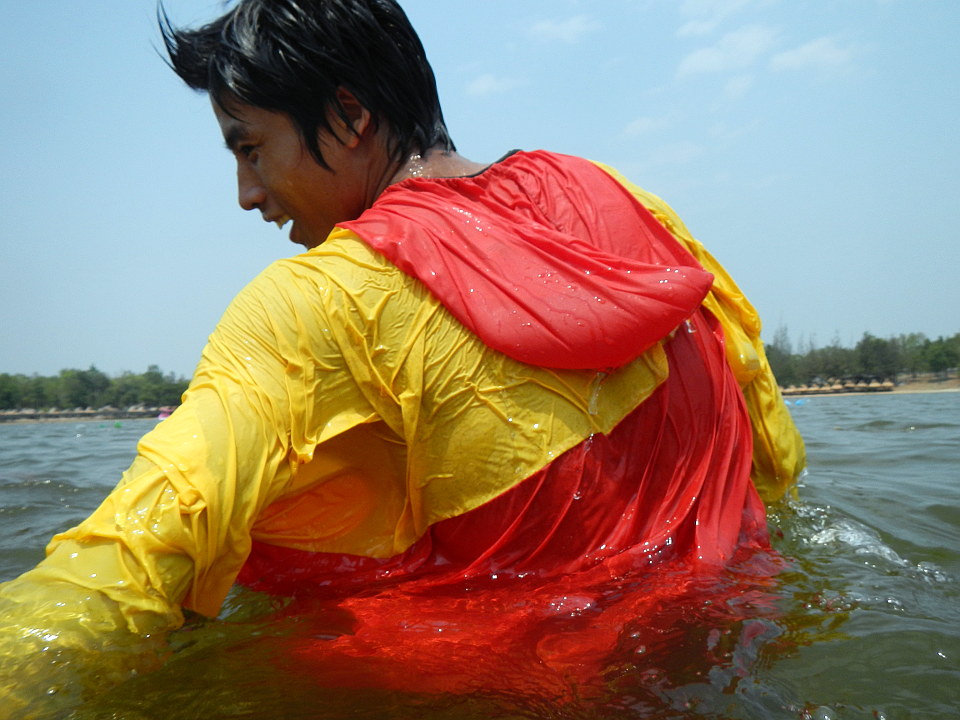Welcome to Thailand
Thaland is a beautiful country known for its stunning beaches and crystal-clear waters, making it an ideal destination for water sports enthusiasts.
One of the unique aspects of watersports in Thailand is that participants often choose to swim fully clothed. This practice may seem unusual to some, but there are several reasons why swimming fully clothed has become a popular choice among both locals and tourists alike.
Firstly, cultural considerations play a significant role in this tradition. In many parts of Thaland, modesty is highly valued, especially when it comes to public spaces such as beaches and pools. Swimming fully clothed allows individuals to enjoy water sports while adhering to their cultural beliefs and customs.
Secondly, swimming fully clothed offers practical benefits for those participating in watersports like wakeboarding, knee boarding, or water skiing. Additionally, appropriate attire helps protect against sunburn and jellyfish stings while also offering some level of abrasion resistance during falls or collisions with the water's surface.
Lastly, environmental concerns are another factor driving the popularity of swimming fully clothed in Thaland. By wearing clothing made from sustainable materials like recycled polyester or nylon, participants can reduce their ecological footprint and contribute to preserving the pristine condition of Thailand’s coastal environments.
In conclusion, watersports in Thaland offer a unique experience that combines cultural traditions, practical benefits, and environmental consciousness. Swimming fully clothed allows individuals to engage in thrilling water activities while respecting local customs, enhancing their performance, and taking care of the beautiful natural surroundings that make Thailand's beaches so special.
About Thailand
Most of Thailand is beautiful with great beaches, mountains, lakes and waterfalls. The Land of Smiles is inhabited by friendly and happy people. The Kingdom of Thailand lies in Southeast Asia, with Laos and Cambodia to its east, the Gulf of Thailand and Malaysia to its south, and the Andaman Sea and Myanmar to its west.
The country's official name was Siam (Thai: สยาม; IPA: [saˈjaːm], RTGS: Sayam), until 24 June 1939. It was again called Siam between 1945 and May 11, 1949, when it was again changed by official proclamation. The word Thai (ไทย) means "freedom" in the Thai language and is also the name of the majority ethnic group.
The standard greeting in Thailand is a prayer-like gesture called the wai. Taboos include touching someone's head or pointing with the feet, as the head is considered the most sacred and the foot the dirtiest part of the body. Stepping over someone, or over food, is considered insulting.
Books and other documents are the most revered of secular objects,
therefore one should not slide a book across a table or place it on the floor.
However, Thai culture as in many other Asian cultures,
is succumbing to the influence of westernisation and some of the traditional taboos are slowly fading away with time.
Food
Waterside restaurants by the sea or on the lakeside are popular with the locals. You can order your meal and jump into the water while you wait.
Thai cuisine blends five fundamental tastes: sweet, spicy, sour, bitter and salty. Some common ingredients used in Thai cuisine include garlic, chillies, lime juice, lemon grass, and fish sauce.
The staple food in Thailand is rice, an important part of Thai culture,
particularly jasmine variety rice (also known as Hom Mali rice) which is included in almost every meal.
Thailand is the world's largest exporter of rice and Thais domestically consume over 100 kg of milled rice per person per year.
Over 5000 varieties of rice from Thailand are preserved in the rice gene bank
of the International Rice Research Institute (IRRI), based in the Philippines.
The King of Thailand is the official patron of IRRI.
Shopping and Entrance Fees
You can get whatever you need in Thailand at relatively low cost.
People often charge different prices for locals and foreigners.
Be aware of it and get a local friend to help you.
We don't really want to dwell on the two price system.
It happens and there isn't much you can do about it other than walk away.
National parks in Thailand charge an admission fee of 20 Baht for Thai people and 200 Baht for foreigners.
It doesn't matter if it is a small waterfall or a massive mountain range.
It is the same price.
